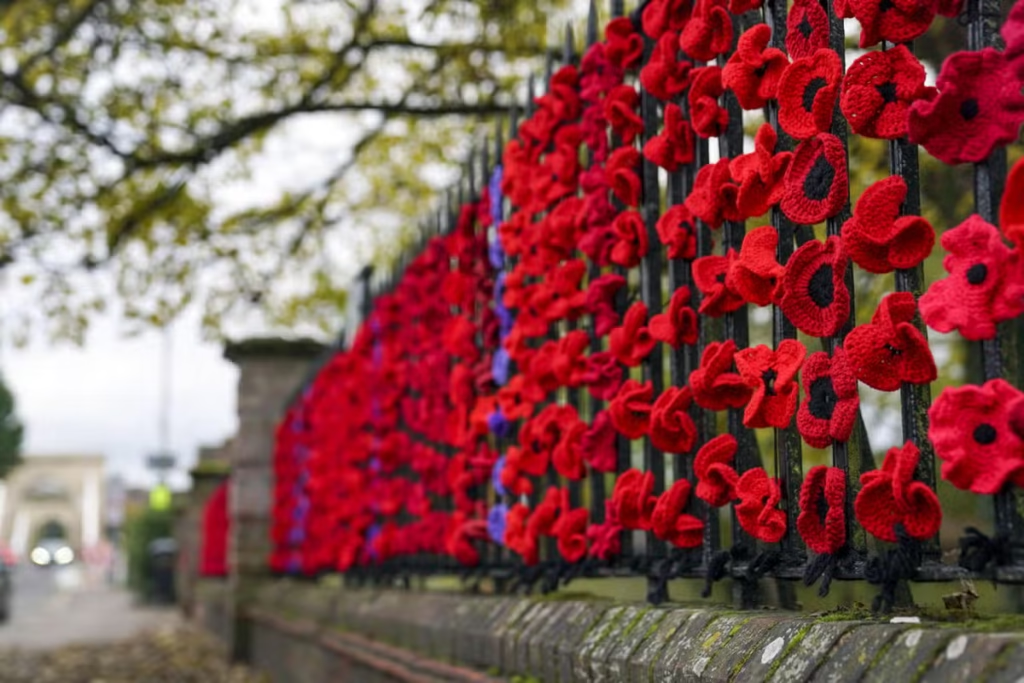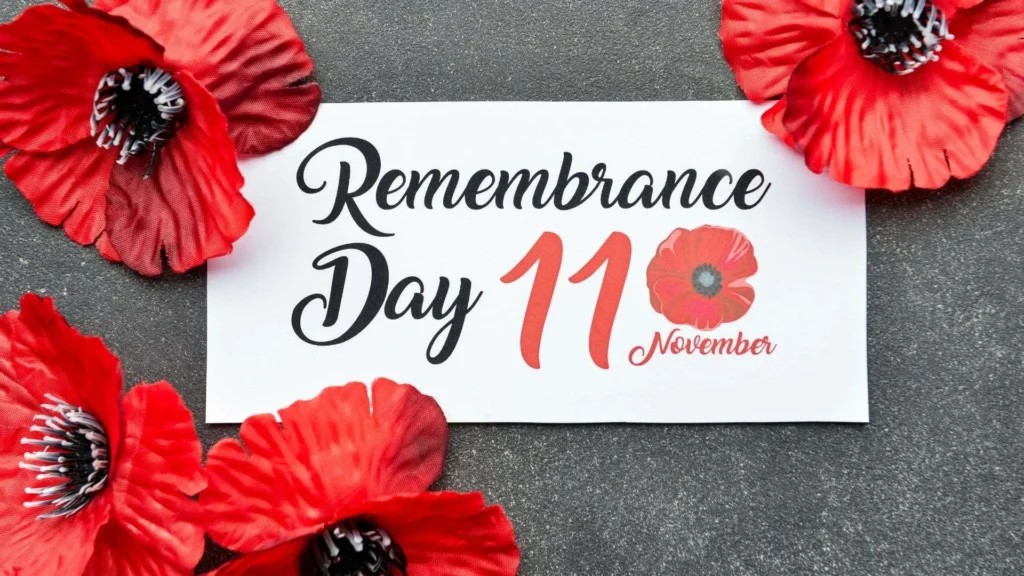Remembrance Day is a Day to honour and remember soldiers who died in wars. It is observed on November 11 every year. In some countries, it’s also called Armistice Day. In the UK, this Day is special for remembering the end of World War I and honouring everyone who has served in the armed forces. On Remembrance Day, people gather to think about the soldiers who sacrificed their lives.
Remembrance Day is when people in the UK and many other countries honour soldiers who died in wars. This Day focuses especially on those who fought in World War I and II. People also remember soldiers who served in later conflicts. Remembrance Day began as Armistice Day, marking the Day World War I ended on November 11, 1918. At 11 a.m. that Day, fighting stopped, and the world began to heal. Armistice Day became Remembrance Day to honour soldiers from all wars.
Why We Observe Remembrance Day
On Remembrance Day, people honour soldiers who sacrificed for their country. Many soldiers lost their lives in battle, while others faced injuries or had to leave their families for a long time. This Day helps us remember how much they gave up.
This Day is also important for learning from history. When we remember past wars, we can better understand why peace is important. Younger generations learn about the terrible effects of war and the bravery of those who fought. We all hope to build a more peaceful future by reflecting on the past.
Symbols of Remembrance Day
Remembrance Day has special symbols. One of the most recognised symbols is the red poppy. During World War I, red poppies grew on battlefields in Europe. A soldier named John McCrae wrote a famous poem, “In Flanders Fields,” about these poppies. This poem helped people see poppies as a symbol of remembrance.

There are also different colours of poppies. Each colour has a special meaning:
- Red poppies honour soldiers who died.
- Black poppies remember Black soldiers and communities.
- White poppies stand for peace and a hope to end all wars.
- Purple poppies remember animals, like horses and dogs, that helped in wars.
Another important tradition is the two-minute silence at 11 a.m. People stop what they are doing and stay silent. This tradition started in 1919 when King George V asked people to pause and remember. The two minutes allow people to think quietly about those who sacrificed their lives.
How Remembrance Day Is Observed in the UK
The UK holds many events to mark this Day. These ceremonies help people gather to honour soldiers together.
One major event happens on Remembrance Sunday, the Sunday closest to November 11. People attend services at memorials and churches in cities and towns across the UK, and larger events are also held in places like London.
Members of the Royal Family, government leaders, and veterans participate in a ceremony at the Cenotaph in London. They place poppies wreaths to honour soldiers. People also gather in local communities for smaller parades and poppy wreath-laying ceremonies.
Who We Remember on Remembrance Day
On Remembrance Day, we remember many people. We don’t just remember soldiers from the World Wars. We remember everyone who served, including people in the Army, Navy, Air Force, and Merchant Navy.
This Day also honors people from the Commonwealth nations, including those from Canada, Australia, New Zealand, and India, who fought in wars.
This Day is about remembering people who served in all wars, even after World War II. We remember those who served in the Falklands War, the Iraq War, and the Afghanistan War.
Why Remembrance Day Matters for Today’s Generation
Remembrance Day is also important for young people. When we remember the past, we learn to appreciate the freedoms we have today. The soldiers who fought in wars helped shape the world we live in. This Day also helps us connect with our national identity and feel proud of our history.

Observing Remembrance Day reminds us that peace matters. By honouring those who fought in wars, we understand why avoiding future conflicts is important. Remembrance Day also respects the diversity of those who served.
Conclusion
Remembrance Day helps us all understand the importance of peace and unity. It reminds us that learning from the past can help us create a more peaceful future. Remembrance Day is a special Day for honouring soldiers who gave their lives for their country. It’s a Day to think about the past, show respect, and feel grateful. When you see a poppy or observe the two-minute silence, remember the sacrifices made.
Thank you for reading, click the link to read more of our Articles
Inside Success presents to you our digital platform, created to inform, inspire and empower 16-35s. Through our articles, we aim to bring bold ideas, fresh voices and real conservations to life. From mental health advice, to career information, and fashion tips to social issue debates, Inside Success is proud to have created a platform that has something to cater to everyone.




Leave a Reply
You must be logged in to post a comment.